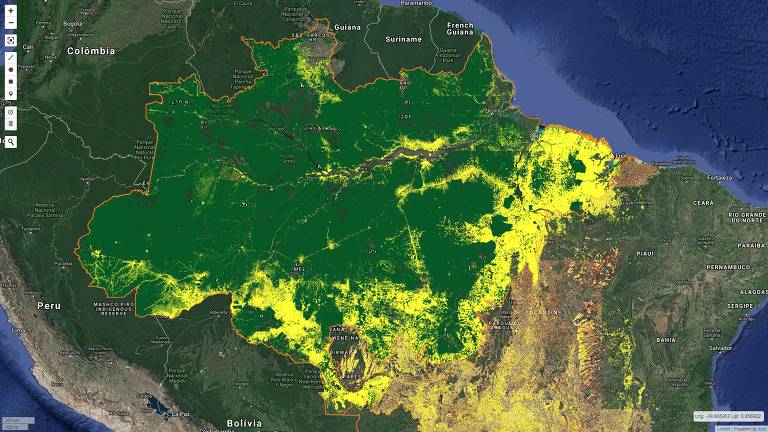Three days after disputing recently released deforestation data, President Jair Bolsonaro insisted that such information should pass through him first.
"I don't want to be caught with my pants down" on important issues that could undermine business in the country, he said.
"You can disclose the data, but you have to go through the authorities as to not be surprised. Even for me, I cannot be surprised by such important information. I can't get caught with my pants down. The information has to come to our attention so that we can make accurate decisions about that information," he said.
Leaving lunch at the Air Force Command, he also stated that the Ministry of Science and Technology should screen the data.
"I'm used to hierarchy and discipline, and in government, I know most are civilians. So when the National Institute for Space Research collects data, it has to upload the data to Minister Marcos Pontes, of Science and Technology, before disclosing it through IBAMA," he said.
Bolsonaro referred to the latest data on deforestation from Inpe's Deter system, a surveillance tool whose data is sent daily to Ibama to help combat deforestation.
Although Deter was developed as a support for enforcement, it can be used as an indicator of annual deforestation trends.
According to these preliminary satellite data, more than 1,000 km² of Amazon rainforest was cleared in the first half of this month - a 68% increase over July 2018.
Inpe Prodes produces the consolidated data on total deforestation in the year (the period between July of one year and August of the following year). It uses more powerful satellite sensors and calculates the total once a year.
The Access to Information Act and the government's open data policy guarantee the public release of deforestation data and also by the federal government's open data policy.
